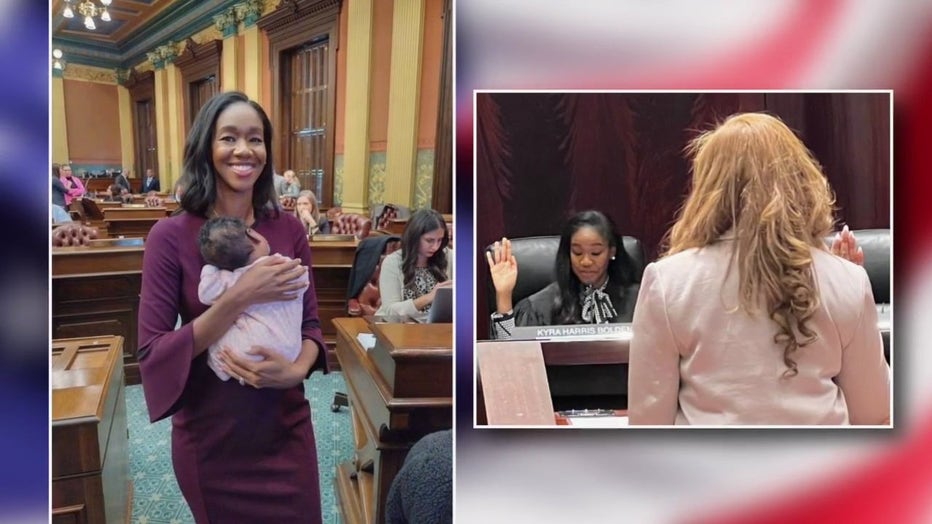1-on-1 with Justice Kyra Harris Bolden: The first Black woman on Michigan's Supreme Court

1-on-1 with State Supreme Court Justice Kyra Harris Bolden
Justice Kyra Harris Bolden reflected on her success in a one-on-one Roundabout exclusive with FOX 2 Reporter Brandon Hudson.
FOX 2 (WJBK) - In an exclusive interview with State Supreme Court Justice Kyra Harris Bolden, she reflected on her career and the barriers she has broken as a Black woman in law.
"I do my best to sit and reflect, although I don't have a lot of time between changing diapers and reading complex legal issues," Bolden said.
Before she became the first Black woman to serve on the Michigan Supreme Court on January 1, 2023, Bolden was a state representative for the 35th district.
Her decision to join Michigan's Supreme Court was inspired by Congresswoman Brenda Lawrence, Bolden told FOX 2.

Kyra Harris Bolden is the first Black woman on the Michigan Supreme Court.
"Sometimes people see things in you that you don't see for yourself, and that was my story. …In June of 2021, Congresswoman Brenda Lawrence asked me to her residence, and she sat me down and basically said to me, ‘would you consider running for Michigan Supreme Court?’ The answer to that was ‘no, I had not thought about it,'" Bolden said. "But she did plant the seed. I ran because I wanted to be able to tell my daughter that she could be anything, and I wanted that to be true for myself first."
Bolden initially lost her campaign for the state Supreme Court in 2022. However, shortly afterward, Governor Gretchen Whitmer appointed Bolden to fill a vacancy left by the retirement of Justice Bridget Mary McCormack.
Upon becoming a Supreme Court Justice, Bolden was also newly embracing motherhood. She had given birth to her first child, Emerson Portia Bolden, only six days prior to accepting the position.

Kyra Harris Bolden, the first Black woman on the Michigan Supreme Court, had given birth only six days prior to accepting the position.
"I had no idea that Chief Justice McCormack was going to step down, and that there might be a position open for me regardless of if I won or lost this election," Bolden said. "But my loss really taught me that if a door closes, it's not for you. And if it's for you, it will happen. So, that was a great lesson to learn."
On April 28, 1939, Jesse Lee Bond, Bolden's great-grandfather, was lynched in Tennessee. Despite compelling evidence suggesting foul play, his death was ruled as an accidental drowning. No one was held responsible.
The injustice her great-grandfather experienced drives Bolden to this day, she said. She keeps his story in mind when trying to make good decisions.
"At the appointment announcement, I said ‘in just a few generations, our family has gone from lynching to law school – from injustice, to a capital J justice,'" Bolden stated. "I think about that a lot, and I think about how my great grandfather would feel about the progress that we've made. I'd like to think he would be proud."
Watch the full interview in the player above.

